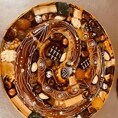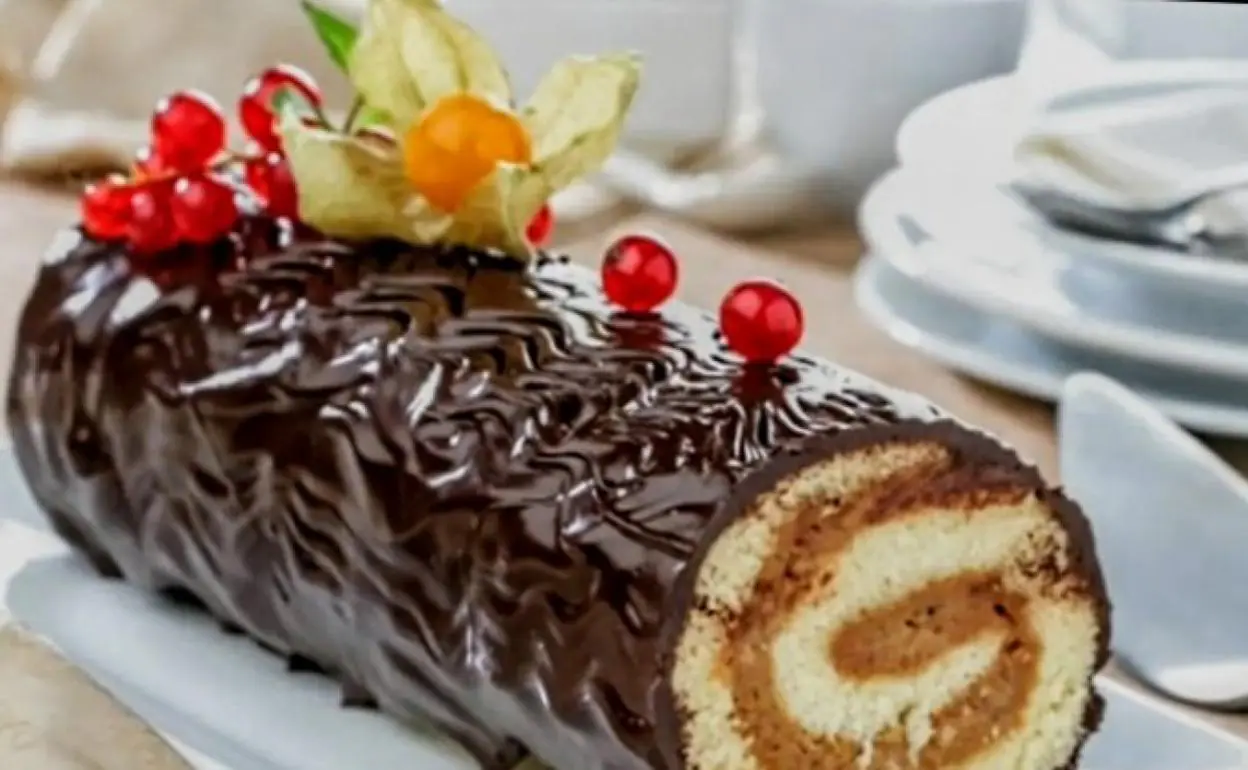Yule logs for the Costa del Sol
One of the pioneers of the local patisserie culture gained inspiration from abroad and used, among others, adapted English recipes
Alekk M. Saanders
Wednesday, 29 December 2021
In Spain the Christmas period is also associated with cakes and sweets. Besides the typical Andalusian 'mantecados' and 'polvorones', some patisseries offer cakes with 'adapted' French, Belgian and English recipes.
One of the oldest and the most numerous patisseries on the Costa del Sol goes by the name of Lepanto. Historically, Lepanto is known in the context of naval engagement of 1571. In Malaga however, Lepanto has been engaging the people of the Costa del Sol with patisserie culture since the 1960s.
'We don't bake bread'
Some 60 years ago, patisserie and Konditorei culture was foreign to Andalucía. That's why Pedro Pablo Lepanto is considered one of the first to start importing and promoting this sophisticated style on the Costa del Sol.
He launched his sweet business in 1964 by opening the first Lepanto in Marbella. Later a violet-coloured café appeared in the central Calle Larios in Malaga. This was a new concept with its sophisticated furniture, mirrors in golden frames and crystal chandeliers and it immediately impressed the locals.

Eventually, the Lepanto cafés arrived in Fuengirola and Torremolinos, where they literally became glamorous venues of dolce vita - sweet life. However, the production headquarters are located in Benalmádena where the father of Malaga patisserie, Pedro Pablo Hoz, has his office.
"On the Costa del Sol we wanted to adapt a new concept with an emphasis on the artistic aspect. We tried to combine a patisserie or confectionery shop and a coffeehouse like they do in France, Scandinavian countries and Germany"
“When we started there were lots of 'panaderías' (bakeries) around here, but we wanted to adapt a new concept with an emphasis on the artistic aspect. We tried to combine a patisserie or confectionery shop and a coffeehouse like they do in France, Scandinavian countries and Germany. In the beginning we even used the German word 'Konditorei', and I hasten to add that we do not bake breads,” Pedro Pablo Hoz told SUR in English.
Absorbing foreign experiences and being open-minded make up the formula of any successful business. For the last five decades, Malaga's pastry chefs have exchanged experiences in different countries, including England
Mutual interest
Pedro Pablo Hoz stresses that absorbing foreign experiences and being open-minded make up the formula of his successful business.
He remembers how they began following not only exquisite French-inspired décor for their cafés but also French pâtisserie traditions. Eventually, they adapted Swiss chocolate technology.
For the last five decades, their pastry chefs have exchanged experiences in different countries, including England. Moreover, Lepanto also welcomes foreign chefs to help them hone their skills.

Some years ago a young pastry chef from Britain had an internship in the factory in Benalmádena where he learned how to make 'Colinetas', a typical Spanish Christmas pastry, and other marzipan desserts
“Some years ago a young pastry chef from Britain had an internship in our factory. Here he learned how to make 'Colinetas', a typical Spanish Christmas pastry, and other marzipan desserts. At the same time he introduced his methods of making our cakes the English way,” Pedro Pablo Hoz added.
Today English cuisine is often represented in Lepanto with a plum cake, butter biscuits and a wide range of cakes made with either dried or fresh fruit.
“Lots of English cakes are based on almonds and raisons. And this is what Malaga province is famous for. That's why the English pastry tradition is easily recreated here. I recently found a recipe with the name 'Almond raisin cake with sherry' on the BBC Good Food [a global food media brand]. It means that Andalusian products also inspire English bakery,” Mónica Hoz said, one of the Pedro's children, who is actively involved into the family business.
The sweetest season
One of the typical Lepanto Christmas pastries is the 'tronco de Navidad' (Christmas log), a sponge cake in a form of sweet roulade. Some of Lepanto clients call it by the original French name - bûche de Nöel. However, some English-speaking guests ask for 'Yule log' because it resembles a miniature log burned on a hearth used in the UK and USA as a winter tradition.
